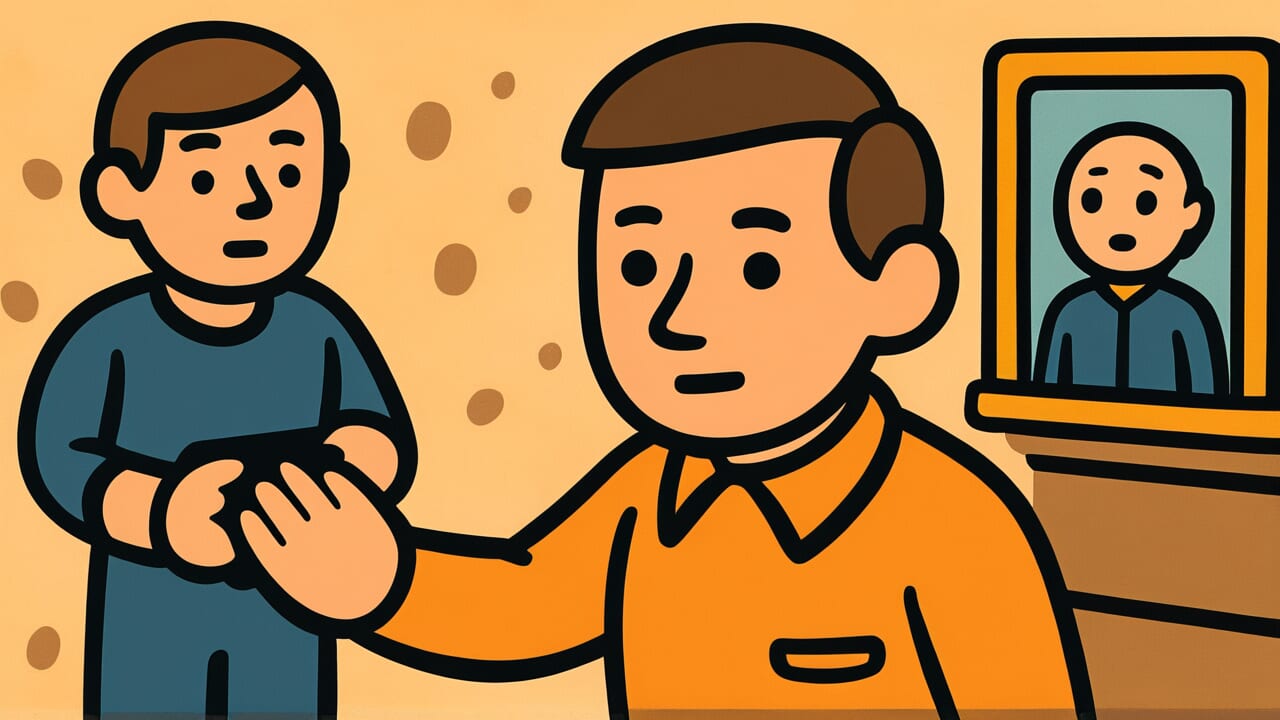How to Read “When a favor is too great, resentment is born”
On hanadashikereba sunawachi urami shōzu
Meaning of “When a favor is too great, resentment is born”
This proverb expresses a paradox in human relationships. When someone does too many favors for another person, it creates a burden rather than gratitude.
Even when you help someone with good intentions, going too far makes them feel overwhelmed. The person receiving help feels crushed by a debt they can never repay.
This psychological pressure builds up over time. Instead of feeling grateful, the person starts feeling uncomfortable around their benefactor. Eventually, these negative feelings can turn into resentment.
This proverb especially applies to relationships with power differences. Think of parent-child relationships, boss-employee dynamics, or benefactor-recipient situations.
Many people have experienced this. You try to help someone too much, and the relationship gets worse instead of better.
Even today, we see this pattern. Overprotective parents face rebellion from their children. Excessive support can destroy someone’s independence and create dependency or resentment.
This proverb teaches us an important lesson. Maintaining appropriate distance and moderation in relationships is essential.
Origin and Etymology
This proverb likely comes from ancient Chinese philosophical thought. It shows strong influence from Confucianism and Taoism, which emphasize balance in human relationships.
The word “on” means favor or kindness. When combined with “hanadashii” (excessive), it takes on a negative meaning of “too much.”
“Sunawachi” means “therefore” and shows cause and effect. This structure embodies a fundamental Eastern philosophy: excess is as bad as deficiency.
What’s interesting is that this saying doesn’t criticize ungrateful people. Instead, it warns those who give favors. Even with good intentions, excessive help can hurt someone’s self-respect and create a sense of debt.
The proverb shows deep insight into this psychological mechanism.
Throughout history, many records show powerful or wealthy people losing popularity by giving too much. People resented them instead of thanking them.
From these historical experiences, this saying was born. It has been passed down through generations to teach the importance of appropriate distance and moderate kindness.
Usage Examples
- She did everything for him out of kindness, but “when a favor is too great, resentment is born”—in the end, he started avoiding her
- Taking too much care of your subordinates can backfire. Remember, “when a favor is too great, resentment is born”
Universal Wisdom
The truth in this proverb relates to human dignity and the need for independence. We need help from others to survive. But we also have a strong desire to stand on our own feet.
The balance between these two conflicting feelings creates the delicate nature of human relationships.
Receiving favors isn’t just about exchanging things. It always creates a hierarchy between the giver and receiver. At first, you feel grateful. But as favors pile up, you become painfully aware of your powerlessness and dependency.
Everyone wants equal relationships. However, excessive favors destroy that equality. They keep the receiver in a constant position of inferiority.
Even worse is the anxiety of not being able to repay. The bigger the favor, the harder it becomes to return it properly.
Unpaid debts pile up in your heart like heavy weights. To escape this pressure, people unconsciously start avoiding their benefactor. They might even deny the favor itself as a psychological defense mechanism.
Our ancestors understood this paradoxical human psychology deeply. True kindness means protecting someone’s self-respect while offering help casually.
This proverb teaches us that lesson beautifully.
When AI Hears This
Living organisms constantly try to maintain a stable internal state. When body temperature rises too high, you sweat to cool down. When blood sugar gets too high, your body releases insulin to lower it.
This homeostasis system activates defense responses against stimuli that exceed the “just right” range. This happens even when the stimulus is nutrition or goodwill.
Vitamin A is necessary for health. But excessive intake causes toxic reactions in the liver. Living systems don’t follow a simple “more is better” rule.
When input exceeds the appropriate range, the body judges it as dangerous and rejects it. This is the result of learning through evolution that extreme changes threaten survival.
Favors in human relationships follow the same structure. When you continuously receive excessive kindness, psychological debt accumulates. The brain recognizes this as an “unpayable burden.”
Then the amygdala sends warning signals. These appear in consciousness as anxiety or distress.
If this continues, the person who gave the favor becomes recognized as the “source of burden.” They transform into someone you want to avoid.
Just as biological systems show rejection to nutritional excess, psychological systems show defensive reactions to goodwill overload. Both operate on the same principle: maintaining the appropriate range.
Lessons for Today
This proverb teaches modern people what true kindness really means. The desire to do something for others is noble. But we must humbly recognize that our goodwill can sometimes hurt people.
In modern society, social media makes others’ lives visible. This can make us think “I must do more for them.” But what matters is identifying what people truly need.
We must respect their independence and dignity while offering help casually.
This principle applies to all relationships. Parent-child, friendships, workplace connections—the rule stays the same.
Because you care about someone, you sometimes need the courage to step back and watch. Not helping too much and giving people chances to solve problems themselves is also a form of deep love.
For your kindness to help others shine, appropriate distance is essential. Trust in their growth and support them gently only when needed.
This balanced approach is the secret to building rich, lasting human relationships.



Comments